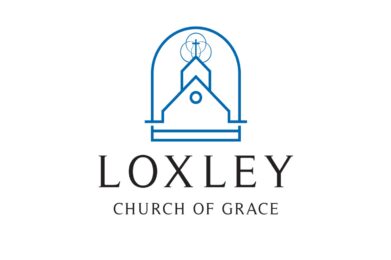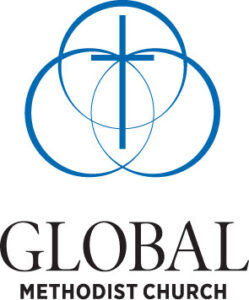Serve
Listed below are but a few ways you can serve our church. Please let the Pastor know if there is a particular committee or any other ways you would like to help in the life of our church. It takes the whole congregation to make a vibrant and active church.
The Church Council
The church council shall provide for planning and implementing a program of nurture, outreach, witness, and resources in the local church. It shall also provide for the administration of its organization and temporal life. It shall envision, plan, implement, and annually evaluate the mission and ministry of the church. The church council shall be amenable to and function as the administrative agency of the charge conference.
Nominations & Leadership Development
The charge of the committee on nominations and leadership development is to:
- identify the gifts and strengths of persons in the congregation
- develop their gifts and skills and nurture them in their mission or ministry roles
- deploy persons according to their gifts and passion in areas of service within the church, community, and world
- evaluate the effectiveness of their service and provide necessary training and support
- monitor the progress of their development and celebrate their accomplishments and service.
Trustees
You will supervise and maintain all property belonging to your congregation so that the ministries of the congregation can be effective. You will work closely with the church council to respond to God’s call.
Your basic responsibilities are:
- To oversee, maintain, and supervise all local church property;
- To report annually to the charge conference on the state of the church’s property, equipment, investments, and resources;
- To receive and administer all gifts made to the congregation;
- To make certain that all trust funds of the congregation are invested properly;
- To ensure that the articles of incorporation of the congregation are kept up to date;
- To be responsible, in conjunction with the pastor, for all use of the church buildings and grounds;
- To maintain adequate insurance coverage on all church property and to develop appropriate risk-management policies;
- To submit to the committee on finance annual budget requests for insurance, property maintenance and improvement, and new property purchases;
- To be accountable to the charge conference and to the church council (administrative council or administrative board).
Role of Lay Leader
The Book of Discipline of the United Methodist Church informs your leadership role as:
- serving as primary advocate for the laity; including promoting the observance of Laity Sunday;
- recognizing, fostering awareness of, and celebrating within the faith community the ministries of all laity in daily life;
- meeting regularly with your pastor to discuss the function and flow of the mission and primary task within and through your congregation and to determine needs for new ministries;
- serving on lay leadership committee with your pastor; being a member of the charge conference, the administrative council, and finance committees to advise about ministry opportunities and needs within the community and world; an d interpreting primary tasks, programs, and concerns of the annual conference and general church in order to foster understanding of their connectional interaction with the local congregation;
- taking advantage of training opportunities and extending these opportunities to all laity;
- serving on the staff-parish relations committee, the church council, and the committee on finance;
- as the lay member of your annual conference, if elected to serve, to share and interpret the actions of the annual conference.
- You are urged to become a certified lay speaker!
Role of Lay Member of Annual Conference
The Book of Discipline informs your leadership role as:
- serving as interpreter of the actions of the annual conference session;
- reporting to the local church council on actions of the annual conference as soon as possible, but not later than three months after the close of the conference.
- serving on the pastor-parish relations committee (staff-parish relations), the church council and the committee on finance.
These roles presume additional responsibilities:
- preparation for annual conference by:
- studying the preconference journal and materials referent to resolutions and petitions submitted for action;
- becoming knowledgeable about your conference Rules of Order;
- knowing and understanding your annual conference process for conducting its business and when the various processes are appropriate to the matter at hand: Roberts Rules of Order/consensus/discernment;
- meeting with pastor, lay leader, and members of congregation to discuss issues;
- reading previous Conference Journals to get a flavor of anticipation;
- having a general knowledge of the content and use of The Book of Discipline of The United Methodist Church:
- serving as member with full voice and vote in the annual conference session and any special session dealing formally with annual conference business (e.g.: district conferences or specially called sessions); volunteering to serve on conference/district committee;
- attending all sessions of the annual conference; an alternate will be elected by the local church charge conference and should be alerted if you cannot attend;
- participating in all worship experiences (opening communion, memorial service, ordination service, early morning services, vespers)
- attending special events (mission fair, celebration of ministry)
- listening, speaking, and voting (making informed decisions, electing persons to serve on conference agencies, and electing General Conference and Jurisdictional Conference delegates)
- interpreting the needs, concerns, visions of your local congregation to and within the annual conference;
- networking: sharing ideas and concerns informally with other members of the annual conference and guests;
- exploring resources displayed at annual conference:
- Cokesbury store
- Mission exhibits
- Board and agency tables
- Diligently reading and sharing with your congregation information from your conference newspaper and Website and general church news source;
- Being informed and informing others about the mission and ministry of The United Methodist Church, the particular part of the Body of Christ through which you express your faith and commitment to making Christ real in your congregation, community, and world.
Church Historian
As historian, you will want to:
- Establish an archives if one does not already exit
- Encourage church officers to keep accurate church records.
- Provide for the preservation of all records and historical materials no longer in current use.
- Promote interest in the history and heritage of The United Methodist Church and of your own congregation.
- Assist the pastor and others in the annual observance of Heritage Sunday and in the celebration of significant anniversaries.
- Serve as a member of the Committee on Records and History if one exists.
- Serve on the church council and/or other committees to which the local church historian is assigned.
- Help those who wish to do research in your church’s records.
These are the basics. Don’t be afraid to branch out, though! Work with your pastor and other church leaders to identify the places and time3s where you can use your God-given abilities and interested to serve the church in the ministry of history. You may have special gifts in writing, drama, music, working with children, or public relations. Use them to make history come alive!
Men’s Ministries
The Book of Discipline of the United Methodist Church states
Each church or charge shall have an organized unit of United Methodist Men chartered and annually recertified through the General Commission on United Methodist Men to provide a dedicated ministry for building men spiritually and involving men in the total ministry of the Church.
Local church resource material for supporting effective men’s ministries shall be provided by the district, conference, and jurisdictional organizations of United Methodist Men and the General Commission on United Methodist Men.
United Methodist Men exists to declare the centrality of Christ in every man’s life. Men’s ministry leads to the spiritual growth of men and to effective discipleship. This purpose is served as men are called to model the servant leadership of Jesus Christ.
Men seeking membership in a local unit of United Methodist Men will be asked to subscribe to the major strategies listed and to these personal objectives.
- To engage daily in Bible study and prayer.
- To be a witness to Christ’s way in daily work and in all personal contacts through words and action.
- To engage in Christian service.
Membership shall be open to any man who indicates his desire to belong and to participate in the ministry of the church through United Methodist Men.
Women’s Ministries
United Methodist Women is a community of women whose Purpose is to know God and to experience freedom as whole persons through Jesus Christ; to develop a creative supportive fellowship; and to expand concepts of mission through participation in the global ministries of the church.
Membership is open to any woman who indicates her desire to belong and to participate in the outreach mission of the church through the organization. Over one million laywomen have chosen to be members of United Methodist Women.
Children’s Director/Coordinator
You are a key person in the children’s ministry of your congregation. Your job, as the coordinator of children’s ministries in your congregation, assures that children’s faith is taken seriously in the life of your church. Your primary task (like that of the whole church) is to help children on their journey as disciples of Jesus Christ. Given that, what are the relationships and responsibilities for which you are accountable?
Children, and those persons who teach and care for them, are your primary responsibility. Model the love and care that Jesus manifested in his life in order to help children understand their role as disciples. Children are special persons of dignity and worth. Listen to their stories. Know them and call them by name. Keep them safe. Be an advocate for them. They are a valuable part of the congregation, with gifts and blessings to share. In all your actions and reactions, model God’s unconditional love for children.
Develop positive relationships with the children and their teachers and with other persons in the congregation. Your role as an advocate for the children will require you to have good working relationships with other congregational leaders and with a variety of other groups. Additionally, having a good relationship with parents and knowing the environment or situation in which the children live will add a valuable dimension to your ministry.
Interpreting and planning for the spiritual, mental, physical, emotional, social and moral growth of children are important. These guidelines will help you respond to children’s needs as you plan for

